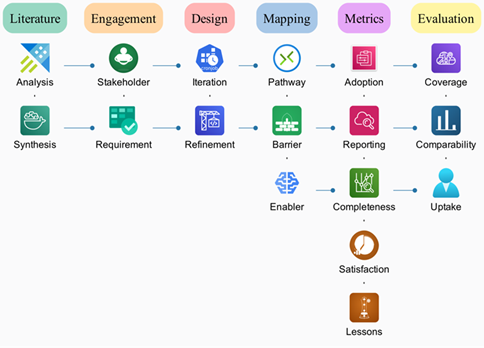Bridging Knowledge Gaps: Conceptual Frameworks for Inclusive Learning Dissemination in Development Impact Assessment
Main Article Content
Abstract
Impact assessment learning will only be able to be harnessed if it is shared effectively such that “good” practice becomes embedded at the agency and partner level, but regional development agencies will in many cases be unable to relate directly to remote or out-of-the-way stakeholders and hence the significance of the impact of work of evaluation. By leveraging these literatures, the paper addresses the long traditions of knowledge gaps in the field of development impact assessment and presents a comprehensive theoretical direction, that integrates knowledge from organizational learning perspective, knowledge management and multi-channel communication. Informed by multi-disciplinary research reviewing and synthesis of best practices identified from development program reviews, donor workshops, and practitioner-led case sharing, pathways for knowledge co-creation, contextual adaptation, and decentralized dissemination are outlined. The findings present an organized nuanced perspective of the barriers and enablers towards inclusive learning, especially hindrances towards the reach of stakeholder and uptake of learning in the marginalized community. Key recommendations emphasize the need to leverage low- and network- technology together with high-tech digital approaches, to empower local knowledge champions and to incorporate ongoing learning in program cycles. The resulting model is intended to offer practical advice to donor agencies, implementing partners in NGOs, and microenterprise program practitioners who want to institutionalize accessible diffusion of effective knowledge related to microenterprise support, in order to promote the equity and effectiveness of such interventions. The main added value comes from the suggestion of pragmatic ways of tackling the knowing-doing gaps and facilitating adaptive learning systems at a different stage of development.
Article Details

This work is licensed under a Creative Commons Attribution 4.0 International License.

